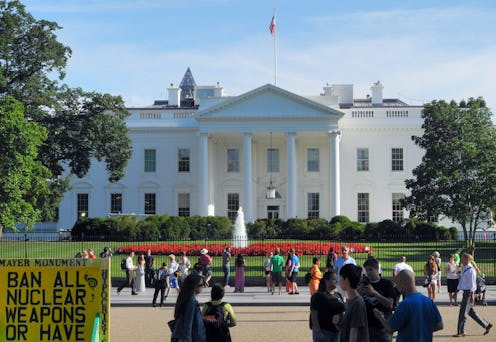News
The Electoral College Has Some Disturbing Origins
The Electoral College is a source of consternation once again for many Americans after the 2016 presidential election. For the fifth time in the 228 years that it’s been in effect, the Electoral College handed the presidency to a candidate who failed to win the national popular vote — Hillary Clinton leads Donald Trump by more than 2.5 million votes at the time of writing, according to the Cook Political Report. So, why did our framers create the Electoral College?
There are a handful of reasons why the framers opted for the Electoral College, from the purely logistical to the highly partisan. Probably the best defense for the Electoral College is simply that information in the late 18th Century moved really slowly.
As CGP Grey pointed out in his video “The Trouble With The Electoral College,” the fastest way to send information was to “write it down on a piece of paper, hand it to a guy on a horse, wish him ‘godspeed good sir,’ and hope he didn’t get killed by Indians or die of dysentery along the way.” With the young United States being so large, time was needed to transmit the election results from the farthest flung parts of the country to the capital.
But the Electoral college served another, more sinister purpose: to help preserve slavery. One disagreement the colonies had in the early days of the Republic was the struggle between the industrial, densely populated North and the agrarian, slavery-dependent South. Many parts of U.S. government are vestiges of this struggle. For instance, our bicameral legislature, with an upper house that apportions senators equally among the states regardless of population, was a compromise to keep the more populous states from overruling the less populous ones.
This system not only inflated the power of less populous states, but it rewarded the slave-owning South by counting their slaves — sort of — toward congressional representation (and thus, additional Electoral College votes) without extending them the franchise. That "sort of" was that slaves were, remarkably offensively, considered three-fifths of a real person as part of the Three-Fifths compromise.
“In a direct election system, the South would have lost every time,” explained Yale Professor Akhil Reed Amar in an interview with Vox. Slaves, who made up a big portion of the Southern population, couldn’t vote. “But an Electoral College allows states to count slaves... and that's what gave the South the inside track in presidential elections.”
So, when the Electoral College casts its votes on Dec. 19, it’s worthwhile for us to pause and consider why we have this system in the first place, what it’s doing to our political system today, and whether it’s a part of our Constitution we’re comfortable preserving.
